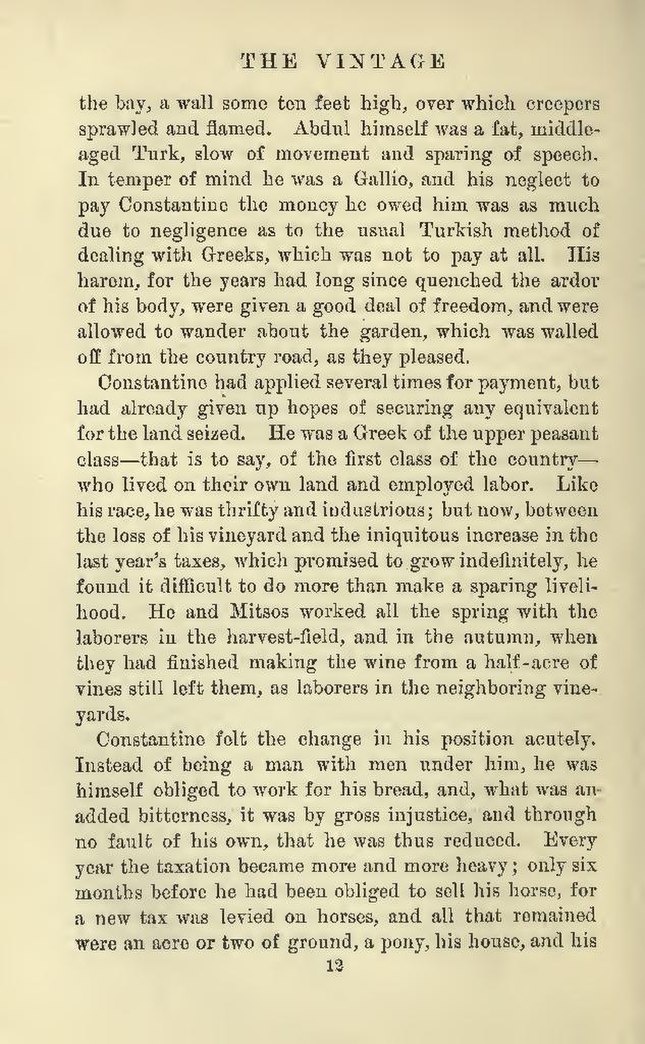THE VINTAGE
the bay, a wall some ten feet high, over which creepers sprawled and flamed. Abdul himself was a fat, middle aged Turk, slow of movement and sparing of speech. In temper of mind he was a Gallio, and his neglect to pay Constantine the money he owed him was as much due to negligence as to the usual Turkish method of dealing with Greeks, which was not to pay at all. His harem, for the years had long since quenched the ardor of his body, were given a good deal of freedom, and were allowed to wander about the garden, which was walled off from the country road, as they pleased.
Constantine had applied several times for payment, but had already given up hopes of securing any equivalent for the land seized. He was a Greek of the upper peasant class—that is to say, of the first class of the country—who lived on their own land and employed labor. Like his race, he was thrifty and industrious; but now, between the loss of his vineyard and the iniquitous increase in the last year's taxes, which promised to grow indefinitely, he found it difficult to do more than make a sparing livelihood. He and Mitsos worked all the spring with the laborers in the harvest-field, and in the autumn, when they had finished making the wine from a half-acre of vines still left them, as laborers in the neighboring vine yards.
Constantine felt the change in his position acutely. Instead of being a man with men under him, he was himself obliged to work for his bread, and, what was an added bitterness, it was by gross injustice, and through no fault of his own, that he was thus reduced. Every six year the taxation became more and more heavy; only six months before he had been obliged to sell his horse, for a new tax was levied on horses, and all that remained were an acre or two of ground, a pony, his house, and his
12
